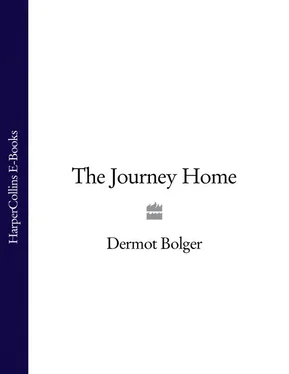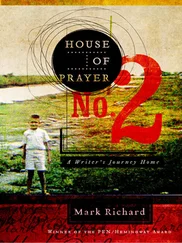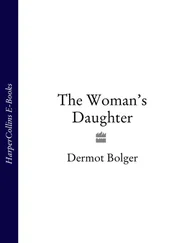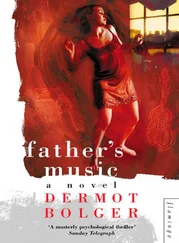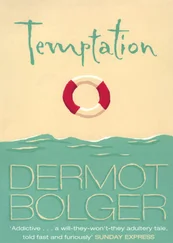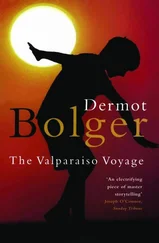‘Home?’ he said uncertainly.
‘That’s all Shay ever spoke of,’ she said. ‘Trying to get home from Europe at the end; I never thought of going home till he began talking about it.’
Shay had simply arrived back saying nothing to him and Hano had never dared to ask. Automatically he made a note to ask Shay now and winced, cursing his memory for letting him forget. He felt sickened after the voices on the radio.
‘Never spoke about it much to me,’ he said.
‘Coming home, trying to fit back, that sort of thing,’ she said. ‘If you asked him he’d clam up, stare into space. One night I said to him that when I was stoned I started thinking they’d sucked the air out of Dublin, you know what I mean, and people around me were opening and closing their mouths with nothing coming in, nothing going out.
‘It sounded bleeding thick when I said it but he just rolled another cigarette and stared out the window. Then he started talking about nights up in the loading bay of a canning factory in Denmark when he’d look down from the hoist at four in the morning on the workers below, nobody speaking, the limbs just moving automatically. He said he’d start thinking the conveyor belt and the loading machines were alive, that at half-seven they’d stop and the arms of the men would keep on moving back and forth till some cunt remembered to press a switch.’
Those months Shay spent in Europe puzzled Hano like an oppressive weight. He didn’t know why they were important, but if he could fathom what happened there he might understand why he was here now. He had the facts that Shay had finally told him on the last night, but they alone could not explain his unease. It hurt to have to ask Katie what he had said as if it somehow gave her possession of part of Shay. He leaned his head against the wall and listened to her.
‘Often, you know, I wasn’t really sure what the fuck he meant by things. Once he said you could never go home. It was some old Turk in a hostel filled his head with it.’
Hano listened to her describing Shay’s bed with three others in the dormitory, the steel locker, the piece of wall for the pin-ups and photographs, the Yugoslav woman who served them meals on metal plates without a smile. He remembered the easy boredom of the Register’s office, the cardboard boxes burning between the blocks as they leaned against the prison wall smoking.
‘Anyway, the Turk said you carried home around inside you. It was more real there than when you went home. It didn’t change and you weren’t changed seeing it.
‘It was some week when Shay was broke and spent each night sitting with him. Your man used to scorn the younger Turks for drinking and looking at whores at night. Time went too slow that way he claimed. He’d sleep instead and every hour slept was a victory. He said he was cheating time, making it work for him so he could go home sooner. I told Shay that Beano who did six months in the Joy once said that was what the old lags did as well.
‘But no matter what you did this old Turk said, when you went back to your village you were a stranger inside and always would be. You know, Shay’d repeat that like he was bitter, then just look out the window and wait for you to come home, Hano. I don’t know what the fuck he was remembering but it was like he’d forgot I was there. Jesus, he’d look so old then, sitting in the shadows, the cigarette burnt away to nothing at his elbow, just waiting for you. I’d curse you Hano, whatever you knew that kept him apart from me.’
Hano remembered the silence in the kitchen when he’d opened the door, Katie’s bitter eyes turning to stare at him. How many lifetimes ago did it seem? Once you left home you could never go back. They lapsed into silence, waiting for darkness, to blunder forth, knowing that nothing lay ahead of them.
At dusk a golfer took them to the main road. He chuckled at Katie’s dishevelled hair, taking them for teenage lovers returning to face the music after a night sleeping rough. A van brought them to Balbriggan half an hour before the booths closed. Cars sped down the main street with loudhailers, party workers desperate to get each last vote in.
Hano and Katie queued for chips in The Pop Inn, the crowd joking about the air of frenzy outside. It had been two days since he had eaten anything hot, and now the smell of the boiling grease made his stomach turn. An election agent poked his head in, scanning the faces for somebody. A policeman passed. Hano lowered his head, trying to keep the tremble from his legs. The few late voters were jostled by the canvassers as they made their way to the booths in the town hall. Nobody noticed them as they walked through the square except the punks who sat on the court-house steps with bottles of cider in plastic bags at their feet. They whistled after Katie. Hano grabbed her hand when she seemed about to shout back and steered her off the main street through the terraces of houses by the closed-down hosiery factory. Ornate plaques high on the wall commemorated medals won at trade fairs in Vienna and Paris before the turn of the century. The names of rock groups were sprayed on the brickwork below. A few boats were tied up at the small harbour, coloured lights reflected on the water from the disco bar on the pier. On the hill the lights of the new estates glowed over empty concrete streets. They passed again into darkness and began walking along the Drogheda road.
A farmer picked them up not far from Gormanstown. He was returning from voting in the city.
‘Could you have not voted closer to home?’ Hano asked.
‘I did, I did,’ he chuckled. ‘This afternoon. But the brother always gave his number one to Patrick Plunkett and sure there’s no reason Plunkett shouldn’t have it now just because me brother’s dead. Especially this day, the poor man. A fierce fire that was. Ah, but you can be sure the Brits were behind it. And you know why? The Plunketts were the men to stand up to them, like their grandfather did, that’s why.’
The booths had closed when they reached Drogheda, the town looking like a dancehall car-park after a holiday weekend. The pubs were jammed. The only faces left on the streets stared from election posters on lamp-posts and leaflets piled like autumn leaves along the ground. There was little traffic. Unloaded trailers of lorries were parked on the quayside beside the crumbling Victorian warehouses. They climbed on to the back of one, stretched on the bare boards and stared at the railway viaduct spanning the mouth of the Boyne. Katie’s head rested tiredly against his shoulder. He stroked her hair, closed his eyes and leaned back against the tail-board. The flashlight came from nowhere. Both knew it was a garda before he spoke.
‘Hey! What are you at up there? Come here to me!’
He was running around the side of the trailer before they had jumped to the ground. They heard him call as they dodged through the narrow cobbled streets by the storehouses. The lights of a car turned the corner and bumped down towards them. Hano froze, waiting for the siren to come. Katie pulled him on as the headlights sped past, catching the figure of the garda puffing and slowing down as he cursed their backs.
They didn’t stop till they reached the darkness of the Slane road. They rested in the gateway of a field watching the lights of occasional cars heading for the town. When lights came the other way they pressed back against the bushes, afraid to hitch now. To their left the Boyne ran sluggishly towards the sea, silvered occasionally by rocks. They walked on, listening anxiously for the noise of an engine behind them. Twice they pressed themselves flat against the ditch as cars passed, cursing their fear when they were plunged back into darkness in their wake.
They had travelled over a mile before Katie stopped and listened carefully.
Читать дальше
